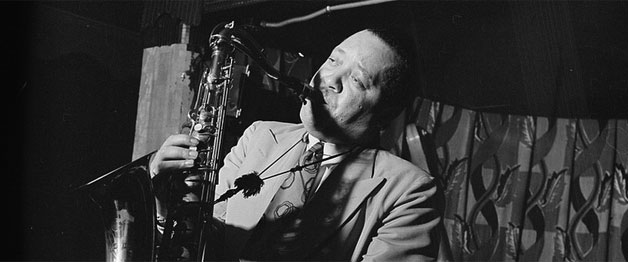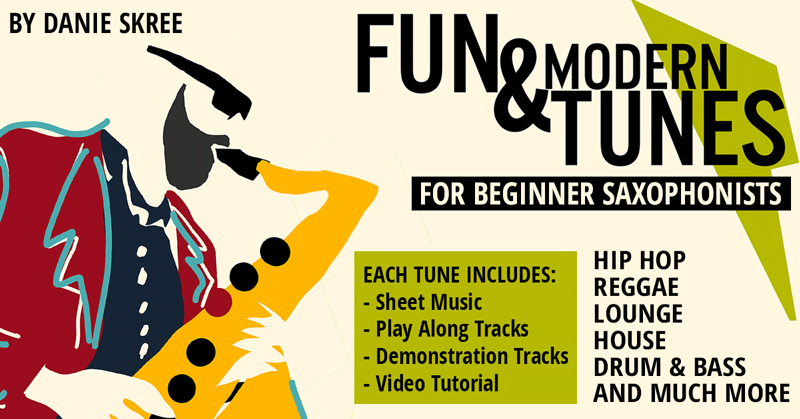How to Add Depth to Your Playing
 This past weekend I got to interview none other than the musical genius swiss army knife known as Bob Mintzer.
This past weekend I got to interview none other than the musical genius swiss army knife known as Bob Mintzer.
I know, totally awesome and amazing, right?
One thing he said during the interview really stuck out to me was this:
To play in a contemporary way, you really must have the depth of having studied the players that the contemporary players studied so that you have this comprehensive vocabulary rather than the shallow vocabulary that results from ONLY studying the most modern players.
To me, “deep music” means music that’s original, profound, compelling, invigorating, and emotionally moving. Deep music has lots of nooks and crannies. With deep music, you can listen to the same recording over and over again and get something new out of each listen. It’s kind of like reading a great book or watching a classic film.
If you start at the depths jazz history , you’ll get Sidney Bechet. Move up a bit you’ll get Coleman Hawkins. Keep on climbing and you’ll run into Benny Carter, Charlie Parker, Coltrane, Orenette Colmen, Wayne Shorter, Michael Brecker, and so on and so on and so on.
And the longer the distance we travel upwards through this musical well, the more “deep” we have.
Fact is, to avoid becoming the poor man’s version of another great player, we’ve gotta dig into areas where our ears wouldn’t naturally go. We have to leave our comfort zone and step into the awkwardness that is the world of music from a time that we can’t even conceive of. A time where music was being influenced by events, trends, customs, language and an infinite number of other factors that are completely foreign to us.
There’s no such thing as music that’s 100 percent original – as though it drifted into our ears from the ether. It’s all just an extension of what came before it. And if you’ve deeply internalized the what’s come before the music you’re making now, you’ve got the keys to the kingdom at your feet.
Totally deep – huh?
photo by ky_olsen






April 19, 2011 @ 2:25 pm
I’d like to push that idea just one more step: the very magical thing about Music is how, “if you’ve deeply internalized the what’s come before…” then an extension will spontaneously emerge out of that synthesis; the music resonates with deep mysteries in the human being, mysteries which go beyond all analysis and study, it is intrinsic to the animal we are to recognize and re-adapt, spontaneously, a cumulative gnosis of music.
And notice too that very little accrues from a mere listening, it is far more potent to be an active re-creation, a “getting inside” of those prior arts, wearing them as a costume or a role, getting the body-feel of what their music was, its purpose and intent, and then, recognizing the utility, stealing from that wisdom in approaching your own time and place.
This is a profound experience and while maybe a bit frightening to the ego that wants to be ‘unique’ there is little to fear: yes, you will be shaped by who you choose emulate, but you did express yourself in the choices you took to copy, and regardless, you will nonetheless always and inevitably remain your own voice.
April 19, 2011 @ 9:33 pm
Wow, that’s some heavy stuff, but it really does resonate. I actually wrote in an earlier article (https://www.bestsaxophonewebsiteever.com//finding-your-unique-greatness-through-mimicry) about actually taking it the next step beyond just listening, but actually actively going out and copying the greats to give yourself the flexibility to go outside your natural comfort zone.
Thanks mrG!
Doron
April 19, 2011 @ 7:51 pm
That’s a good point that Bob Mintzer brings up. Looking into who influences your favorite sax players was something I heard a while back from some musicians who knew what they were talking about. Has helped me branch out and hear even more great music too.
Learning vocabulary that is from different generations of musicians connects you more closely with a great number of people too, I think. Just by playing a single idea, you can be much closer to the people in the audience.
Nice post Doron.
April 19, 2011 @ 9:35 pm
“Learning vocabulary that is from different generations of musicians connects you more closely with a great number of people too” – I never thought about it this way, but it makes a lot of sense.
Thanks for the insight and the kind words Neal,
Doron